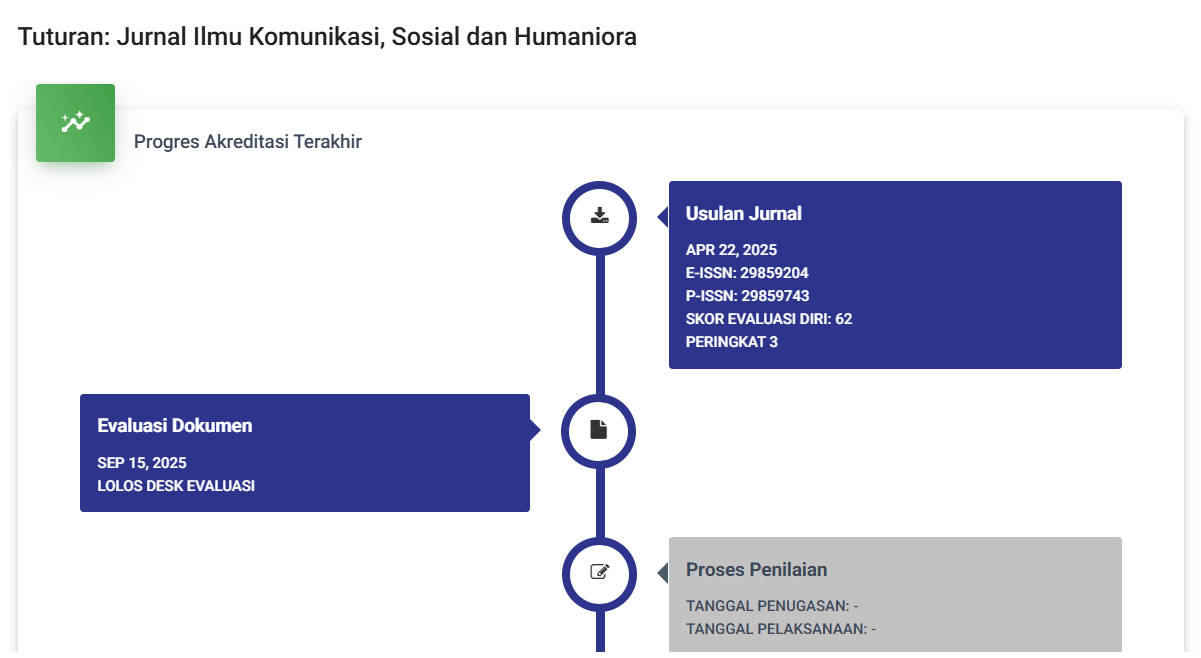KETIDAKPASTIAN GOJEK DALAM DISKURSUS MASYARAKAT RESIKO
DOI:
https://doi.org/10.47861/tuturan.v1i3.266Keywords:
Gojek, Uncertainty, Risk SocietyAbstract
Modern society is faced with risks inherent in its life. This risk comes from the technological uncertainty developments, especially in transportation modes. Gojek be a solution to the uncertainty several aspects by conventional transportation modes. This study uses a phenomenological approach, which places phenomena from the actors point of view and uses the risk society theory introduced by Ulrich Beck as an analytical tool. The concept used is reflective modernity and the boomerang effect that drivers and customers face respectively as users of the Gojek application. Informants are Gojek users consisting of customers as well as drivers. This research used interview, observation, and documentation techniques as primary data, while the secondary data used literature study techniques. Based on the results, it was found that several certainty factors were obtained by Gojek customers, including time, convenience, cost and security. This factor is referred to 'reflective modernity', where this factor becomes a reflection on the uncertainty of conventional transportation. However, for the record, security is also a risk if the goods ordered through Gojek are taken away by the driver. On the other hand, Gojek drivers get uncertainty risk factors, such as fictitious orders, and service discrepancies with customer ratings. This condition is referred to 'boomerang effect' where the risk returns to the main actor. As a solution, the company provides a feature to deal with fictitious orders and a rating feature by users.
References
Beresaby, R. A. (2021). Distansi, Pemisahan, dan Refleksifitas sebagai Penggerak Perubahan Masyarakat : Suatu Refleksi Terhadap Modernitas Dalam Pemikiran Anthony Giddens. Jakarta: Jurnal Pendidikan, Kebahasaan dan Kesastraan Indonesia.
Curran, D. (2016). RESIKO, KEKUATAN, DAN KETIMPANGAN DI ABAD KE-21. PALGRAVE MACMILLAN.
Hisyam, M., & Pamungkas, C. (Eds.). (2016). Indonesia, globalisasi, dan global village. Yayasan Pustaka Obor Indonesia.
Halimah, L. (2018). Developing Civic Education Learning through Cosmopolitan Value Perspective. Journal of Moral and Civic Education, 2(1), 26-37.
Amanah, S., Rosa, D. V., & Prasetyo, H. (2013). Pasca Bencana dan Keterhentiannya: Studi Tentang Kultur Resiko Dalam Keseharian Yang Traumatis. Digital Repository Universitas Jember, 899-918.
Alfiyah, E., & Jannah, R. (2014). Analisis Manajemen Kesan Pengguna Facebook. Jurnal Ilmiah e-SOSPOL, 1(1).
Rosa, D. V. (2017). Kultur Resiko dan Taktik Pemuda Tani. DIMENSI-Journal of Sociology, 10(1).








